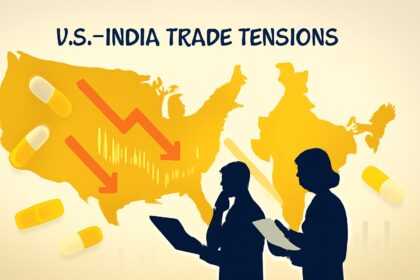The Critical Role of H-1B Visas in Shaping U.S. Tech Leadership
Since its inception in 1990, the H-1B visa program has been a cornerstone for U.S. companies seeking to employ specialized foreign talent in sectors like information technology, healthcare, and engineering. Despite ongoing political debates and proposed reforms, the program remains integral to the growth of the American technology landscape. Recently, the program has come under scrutiny, with proposals such as imposing a $100,000 fee per application threatening to curtail its accessibility. Critics argue that the program displaces domestic workers and is vulnerable to exploitation. However, many of today’s most influential tech leaders credit the H-1B program as a foundational element in their success stories.
Elon Musk: From H-1B Beneficiary to Industry Icon
Born in South Africa, Elon Musk arrived in the United States in 1992 to further his education. Although some details about his visa status have been debated, Musk has publicly acknowledged the H-1B program as pivotal to his and many others’ ability to innovate and build companies such as SpaceX and Tesla. While an advocate for the program, Musk has also supported reforms aimed at improving the system’s efficiency and integrity, reflecting a nuanced stance on maintaining the program’s benefits while addressing its challenges.
Eric Yuan: Overcoming Barriers to Build Zoom
Eric Yuan, the Chinese-born founder and CEO of Zoom, arrived in the U.S. in 1997 on an H-1B visa after multiple application attempts. Starting with limited English proficiency, Yuan’s journey underscores the visa’s role in facilitating access to top talent. Under his leadership, Zoom went public in 2019, marking a significant milestone in American tech entrepreneurship. Yuan has expressed support for the U.S. tradition of welcoming immigrants, viewing it as vital to the country’s innovation ecosystem.
Satya Nadella: Navigating Visa Complexities to Lead Microsoft
Indian-born Satya Nadella, Microsoft’s chairman and CEO, has a unique visa history. After holding a green card, he relinquished it in 1994 to sponsor his wife’s H-1B visa, illustrating the complexities of U.S. immigration policy. Nadella has publicly defended the H-1B program’s role in securing high-skilled labor critical to Microsoft’s global competitiveness, while advocating for reforms that balance security concerns with the need for talent.
Jayshree Ullal, CEO of Arista Networks, immigrated to the U.S. as a teenager and progressed through top-tier educational institutions before entering the tech industry. She is a former H-1B visa holder and vocal advocate for immigration reform. Ullal has criticized the lengthy wait times for permanent residency, which can span over a decade, limiting career growth for foreign professionals. She emphasizes the global distribution of engineering talent and supports policies that facilitate easier access to the U.S. workforce.
Jeffrey Skoll, eBay’s first president and a Canadian immigrant, obtained an H-1B visa in 1996 to work in Silicon Valley. His experience highlights the program’s challenges, including visa denials and renewals despite specialized skill requirements. Skoll has publicly supported the H-1B program’s necessity for innovation while advocating for improvements to address inefficiencies and ensure fair access.
Impact and Future Outlook of the H-1B Visa Program
The stories of these tech leaders underscore the H-1B visa program’s integral role in the U.S. technology sector’s growth and global leadership. While reform is needed to prevent abuse and protect domestic workers, eliminating the program risks undermining America’s ability to attract and retain top global talent. Balancing national security, labor market concerns, and innovation imperatives remains the central challenge for policymakers. The experiences of Musk, Nadella, Yuan, Ullal, and Skoll collectively argue for a calibrated approach that sustains the program’s benefits while addressing its flaws.
FinOracleAI — Market View
The H-1B visa program is a strategic asset for the U.S. technology sector, facilitating access to a global talent pool essential for innovation and competitiveness. However, the program’s current structure faces significant political and operational challenges that could impact market dynamics.
- Opportunities: Streamlined visa processing and targeted reforms could enhance talent inflow, supporting tech sector growth and innovation.
- Risks: Excessive fees or restrictive policies may reduce foreign talent availability, potentially slowing product development and market expansion.
- Policy Balance: Effective reform must safeguard domestic labor interests while maintaining U.S. attractiveness to high-skilled immigrants.
- Market Impact: Companies reliant on specialized foreign workers may face operational challenges if visa access tightens.
Impact: The H-1B visa program remains a vital component of the U.S. technology ecosystem. Thoughtful reforms rather than drastic restrictions will be critical to sustaining innovation and economic growth.













